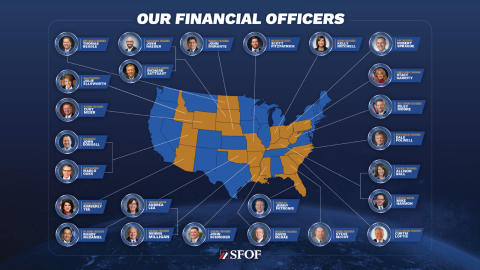
The Norfolk Southern train derailment disaster in East Palestine, Ohio, in February 2023 illustrates why socially responsible investing is so important.
Norfolk Southern, owned 63% by institutional investors including Wall Street banks, ranks poorly on corporate Environmental, Social, and Governance (ESG) guidelines, and the company’s conduct leading up to and after the disaster show why:
- It cleared the tracks after the derailment by burning over 1 million pounds of toxic chemicals, killing 44,000 fish, amphibians, and reptiles.
- It laid off a third of their workforce while multiplying stock buybacks to boost profits.
- It has long fought rail safety regulations such as labeling flammable chemicals hazardous and upgrading train brakes.
Does Norfolk Southern sound like a company you’d like to invest your retirement funds in? Me neither.
Through socially responsible investing (SRI), investors can screen companies like Norfolk Southern out of our portfolios.
Incredibly, responsible investing is now in the crosshairs of political attacks on both the federal and state levels from a network of culture war groups funded in part by Big Oil.
A climate ‘risk wall’
As Sens. Sheldon Whitehouse (D-RI), Brian Schatz (D-HI), and Martin Heinrich (D-NM) explained in an op-ed on CNBC, the financial risks of the climate crisis are now so apparent that the fossil fuel industry is trying to hide the risk, just as they denied the science for decades.
“The underlying problem is that the fossil fuel industry is running up against a ‘risk wall,’” the senators wrote. “Rather than reduce their emissions, or face up to the risks that they cause, the fossil fuel industry is trying to break and remake traditional risk reporting to selectively remove reporting of climate-related risks.”
Wake Up” speeches on the need for climate action.
Congress targets socially responsible investing
In January 2023, a new Department of Labor (DOL) rule went into effect, allowing—but not mandating—retirement plan managers to take ESG considerations into account in their investment decisions.
Almost 7,000 Green America members signed a petition in support of the DOL rule, which reversed two previous Trump administration rules that had required retirement plans to invest solely based on “pecuniary factors” and made it difficult for shareholders to vote on ESG-related resolutions.
Through the Congressional Review Act, Congress can repeal a rule within 60 days of it going into effect. The House and Senate both voted to repeal the DOL rule, squashing the ability of retirement fund managers to invest using ESG principles.
In March, President Biden issued the first veto of his administration, upholding the DOL rule that protects investors’ freedom to invest responsibly.
Since then, House committees have held several hearings to “investigate” ESG practices, full of talking points about “woke” investing. The hearings, featuring witnesses with long track records of climate denial, have been characterized as “off the rails” and “seriously weird.”
Some politicians admit all this is messaging to motivate their base in pursuit of their right-wing political goals. “It’s not going to drive much policy, because the president will veto anything he doesn’t like,” Sen. Kevin Cramer (R-ND) said. “It’s largely politics.”
Battle in the states for freedom to invest responsibly
Although anti-ESG action on the federal level is more smoke than fire, actual policy has been enacted in some states. As of June 2023, 156 bills and nine resolutions were proposed in 37 states. Of those proposals, 18 laws have passed in 11 states, six resolutions in three states, and six bills await governor action.
These proposals are primarily of two types: bills that target public worker pension programs and bills that target state contracting authority. Both types reflect a right-wing political agenda:
Pension bills usually require financial officers or pension boards to focus solely on factors that have a material effect on risk or return, based on the false premise that climate, labor, and other ESG considerations don’t have an effect.
One model bill from the American Legislative Exchange Council (ALEC) forbids considering “events in the distant future or that are systemic”—a clear reference to climate change. Another model bill from the Heritage Foundation forbids consideration of greenhouse gas emissions or diversity among corporate boards or employees. Other bills forbid investing in companies that limit or boycott fossil fuels, firearms, agriculture, timber, animal products, or that provide abortion access and transgender health services.
Contract bills usually prohibit states from doing business with financial service companies that limit or boycott fossil fuels—even though financial companies typically use screening, not boycotting, as a tactic. Some bills prohibit state contracts with any company that limits a list of favored industries including fossil fuels, timber, mining, agriculture, firearms, and more. Many bills require state treasurers or comptrollers to create a blacklist of companies the state is not allowed to do business with.
Fortunately, while 28 anti-ESG state laws and resolutions have passed, many more have been defeated. As of August 2023, 88 anti-ESG bills have died, including all in 18 states: Alaska, Colorado, Georgia, Iowa, Maine, Minnesota, Missouri, Mississippi, Nebraska, Nevada, New York, Oklahoma, Oregon, South Carolina, South Dakota, Tennessee, Virginia, and Wyoming. Pleiades Strategy keeps a running tracker on these bills.
Backlash to the backlash
Contributing to the defeat of state anti-ESG bills were local bankers and business owners. As Rick Clayburgh of the North Dakota Bankers Association testified, anti-ESG legislation is “not solving any problem except putting a burden onto a single industry in this state—the state-chartered financial institution—that aren’t the problem … and yet we’re going to bear this burden so that the North Dakota legislature can send a message to national and global financiers and insurance companies.”
Multiple studies have found that refusing to do business with companies that use ESG in decision making—which includes most major corporations—costs a lot of money.
- A study from the University of Pennsylvania found that two 2021 Texas laws banning cities from contracting with banks that have ESG policies cost an extra $303 million to $532 million in higher municipal bond interest rates
- A report by Econsult Solutions found that taxpayers in Florida, Kentucky, Louisiana, Missouri, Oklahoma, and West Virginia could owe up to $708 million in additional interest charges on municipal bonds due to anti-ESG laws and proposals.
- A Bloomberg report found that Florida pays interest rates on municipal bonds almost half a percentage point higher than California, even though Florida has a better credit rating because Florida blacklisted major municipal bond underwriters due to their support of ESG.
The underlying problem is that the fossil fuel industry is running up against a ‘risk wall,’ … Rather than reduce their emissions, or face up to the risks that they cause, the fossil fuel industry is trying to break and remake traditional risk reporting to selectively remove reporting of climate-related risks.
From an op ed by Sens. Sheldon Whitehouse (D-RI), Brian Schatz (D-HI), and Martin Heinrich (D-NM)
Where is this coming from?
These attacks on our freedom to invest responsibly at the federal and state levels didn’t arise out of nowhere. It’s important to understand where they come from—and why.
In April 2020, a Chicago electronics magnate named Barre Seid gave the largest known political donation in US history—$1.6 billion—to Leonard Leo. If Leo’s name sounds familiar, that’s because for years he led the Federalist Society, which is widely credited with putting a majority of far right-wing justices on the Supreme Court.
With this, Leo launched a network of organizations aimed at reshaping American society—taking direct aim at sustainable investing.
“The ESG movement is polluting our culture and assaulting the dignity and worth of people,” Leo told The Wall Street Journal. “Our enterprise stands with a growing group of Americans who are fighting to crush leftist dominance in this arena.”

Democracy.
Anti-ESG groups benefiting from Leo’s largesse include:
- Consumers Research: Founded in 1929 to test consumer products, CR split from Consumer Reports in 1981 to become a watchdog of liberal causes. With funding from Leo, CR has spent $10 million on anti-ESG campaigns, attacking BlackRock Chair and CEO Larry Fink and pushing Vanguard to drop out of the Net Zero Asset Managers Alliance. They also issue “woke alerts” on brands such as Target and Bud Light.
- State Financial Officers Foundation (SFOF): Based in Kansas, SFOF once pulled together state treasurers to discuss issues like borrowing costs, but recently emerged as a key player in using state treasurers to blacklist companies that employ ESG practices. In response to the Inflation Reduction Act, SFOF worked to combat climate action by opposing federal appointments and sponsoring an anti-ESG website.
- Republican Attorneys General Association: Also funded by Koch Industries, Chevron, and Exxon, this group of state attorneys general sued to stop the DOL rule allowing ESG investing, told 53 top asset managers that ESG investing may violate antitrust law, and motioned to stop BlackRock, a major asset management firm, from voting shares in utilities that adopt ESG practices.
These and other anti-ESG groups are networking with longtime purveyors of climate denial, including:
- Heritage Foundation: A prominent conservative think tank funded by the Koch brothers, Heritage produces articles, podcasts, and a website attacking ESG as a threat to the American way of life, and, absurdly, funded an ad portraying an oil driller denied a bank loan because he doesn’t identify as nonbinary.
- American Legislative Exchange Council: A longtime corporate bill mill funded in part by the Koch brothers, ALEC provided much of the model anti-ESG legislation that targets public pensions and state contracts. Although the model bill requiring states to create a blacklist of companies that use ESG was not formally endorsed, the legislation was proposed in 40 states and passed in five.
- Heartland Institute: Another climate denial think tank, Heartland has also turned its attention to ESG. Its April 2023 report claims ESG threatens individual liberty, free markets, and the US economy. Heartland has long hosted an annual climate misinformation conference, now featuring anti-ESG speakers such as Utah Treasurer Marlo Oaks, who compared ESG to Nazism.
ESG train has left the station
These well-funded anti-ESG campaigns are having some effect. For example, BlackRock CEO Larry Fink has been backtracking on past climate commitments and Coca-Cola CEO James Quincey said that while the company won’t stop considering sustainability, “I’m just going to stop saying ‘ESG’.”
Still, ESG is not going anywhere. Already $8.4 trillion—or 1 in 8 dollars under asset management—use sustainable investing strategies, according to The Forum for Sustainable and Responsible Investment (known as US SIF). At the start of 2020, global sustainable investment reached $35.3 trillion in five major markets, a 15% increase from 2018 to 2020.
Moreover, the consensus among investment managers is that ESG works.
“85% of investment managers and 96% of S&P 500 companies use ESG to mitigate risk, find opportunities, and build profits,” says Peter McKillop, CEO of Climate & Capital Media. “Among US institutional investors, 81% plan to increase ESG allocations, boosting more sustainable assets under management 84% by 2026.”
That means the most effective way we can fight the anti-ESG campaign is to keep voting with our dollars. When consumers and investors work together to encourage companies to adopt climate-friendly policies and support workers and human rights, it has an impact – and makes companies more profitable over time.
85% of investment managers and 96% of S&P 500 companies use ESG to mitigate risk, find opportunities, and build profits…Among US institutional investors, 81% plan to increase ESG allocations, boosting more sustainable assets under management 84% by 2026.
—Peter McKillop, CEO of Climate & Capital Media







